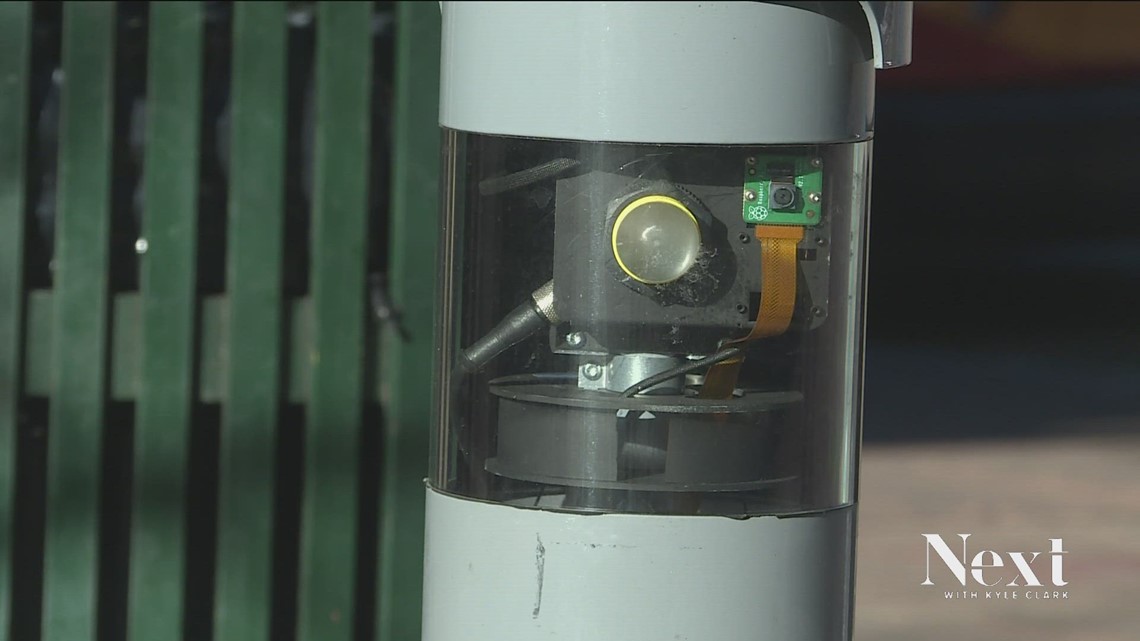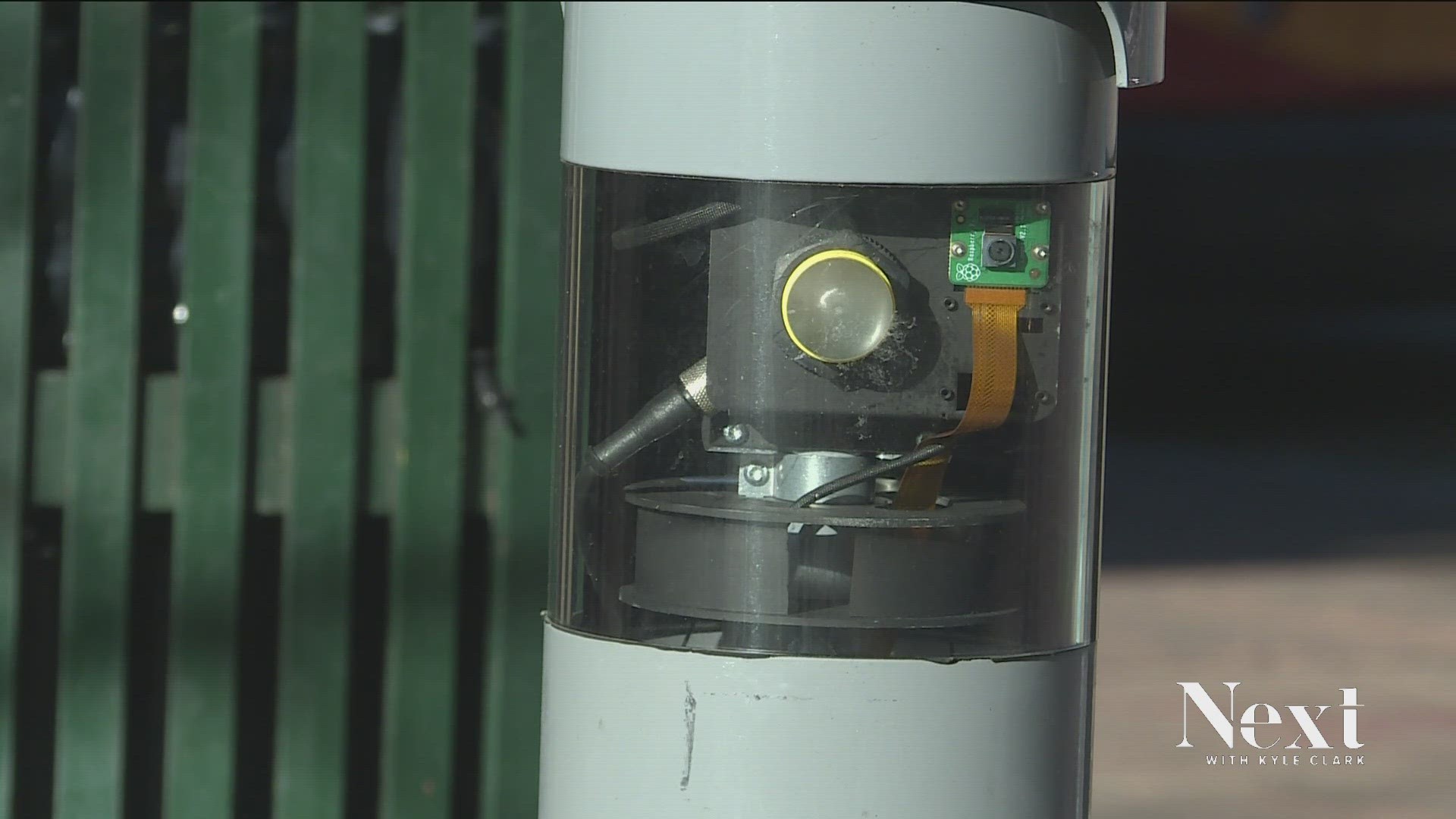DENVER — Rob Toftness recently noticed something strange along some of Denver’s bike lanes – gray permanent-looking poles equipped with cameras.
“I was curious what they were for and what they were collecting,” Toftness said. “I actually thought they might be related to one of the stories you had done with the cell phone pings downtown.”
But they aren’t. The poles are a parking enforcement tool called Safety Sticks, though Denver is not using the tools to enforce parking rules necessarily. Several cities in the U.S. have set up cameras in no-parking zones to send automated tickets.
“What it does is, it'll snap a picture if someone parks in the bike lane, send that data to us, along with location, time of day, things like that,” said Nancy Kuhn with the Denver Department of Transportation and Infrastructure (DOTI).
This is where other cities have started to mail out tickets, much like the process with a red-light camera or a speed enforcement van. But Kuhn said Denver isn’t doing that. She said DOTI is instead collecting data about troubled parking areas and considering other actions to crack down on scofflaws.
“With that information, what we can do is potentially adjust our routing, or have a greater presence in areas that we see that are problem areas,” she said.


Kuhn explained that the cameras will tell parking enforcement officers where they need to be at certain times. Eventually, they could issue automated tickets, but the city doesn’t have a system yet.
“Right now, we don't have a plan or a method in place to do that direct issuing of tickets that I know some cities are doing,” she said. “We're exploring all these options, but really no plan in place yet to take that step.”
Kuhn did note that tickets for people parking in bike lanes were up this year. She said the city hasn’t had an opportunity to analyze the Safety Stick data yet – so there’s no correlation.
Toftness, a bike advocate with the Denver Bike Lobby, said he’s disappointed the city isn’t using the opportunity to automatically send tickets.
“It's frustrating, because when I did look into it, there's a lot of places that are actually using these,” he said. “I would think that we could maybe use that as evidence that it works and just go ahead and use them.”
“Enforcement can't be there all the time," he said. "So, it was kind of exciting to see an automated solution that could be there all the time.”
Have a tip for 9NEWS Consumer Investigator Steve Staeger? E-mail steve@9news.com.
More from Steve Staeger:
SUGGESTED VIDEOS: Next with Kyle Clark

